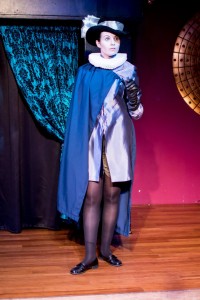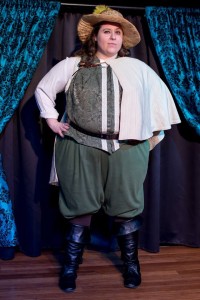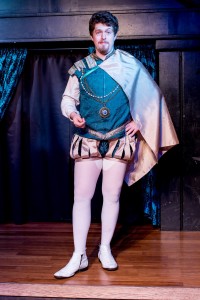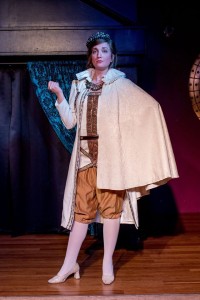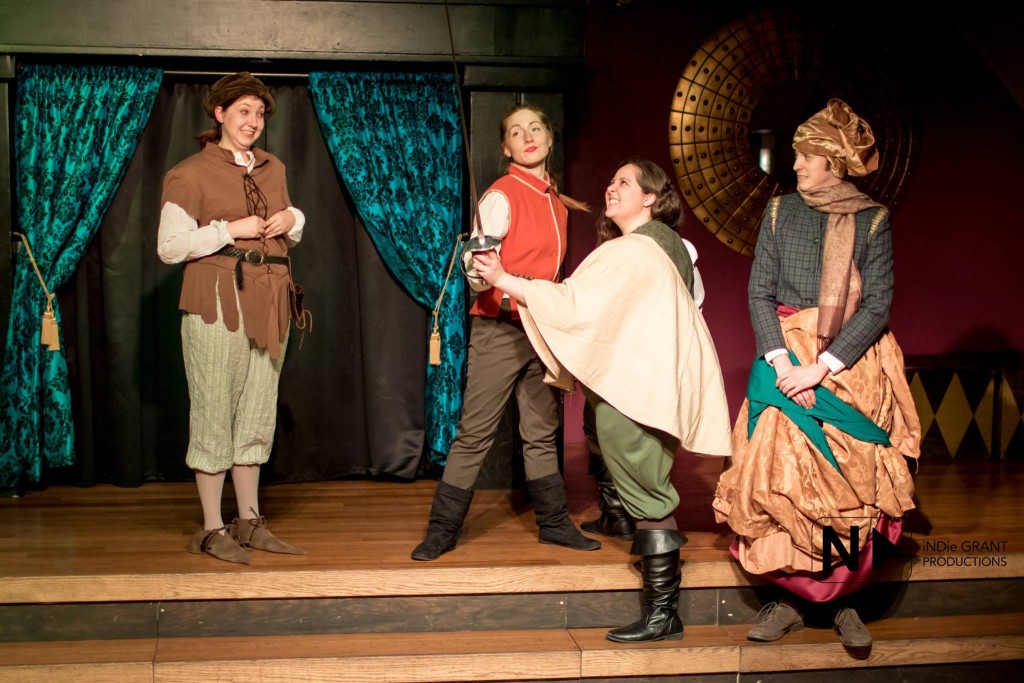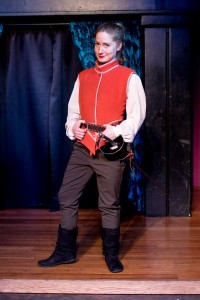
Gilly Guire strikes a rakish pose as Aquiline
As happens with many young male writers (though I’m really not that young anymore), Aquiline began as a commentary on a girl. Rather than self-indulgently writing her as a cliched satellite to a male character, however, I wanted to make sure she was the lead in her own story. Today’s theater remains relatively replete with conflicted male leads and one-dimensional women that inadvertently help them discover something about themselves. In Aquiline, we see a conflicted woman and two men that inadvertently help her gain greater introspection. In fact, it only just now occurs to me that Quill’s two great speeches each occur right after her attitude toward each of the men alters significantly; though, tellingly, neither man is mentioned in either speech.
One of my favorite things about The Wayward Women, though, is that the introspective characters who just might undergo some change over the course of the play are all subservient to and overcast by loud braggarts who actively resist conscious change. Dame Anu, Dame Grendela, and Cordelius present very one-sided personalities to the rest of the world, undergo brief periods of potential change, then discard these alterations in favor of the comfortable personas they have worn all their lives. If these three learn any lessons, their outward selves remain very much the same. Quill, Julian, and Pinne all undergo significant changes, but these are inevitably overshadowed.
For Julian and especially Aquiline, however, change seems unclear. Quill declares more than once that she will change her behavior, but we never really get to see if that is true. In fact, in almost every scene, all we see is some variation of “I’m doing the wrong thing, but at least I’m conflicted about it.” I think this is a very human sentiment, and some of the play’s most beautiful poetry comes from that contradiction.
COSTUMES by Delena Bradley
LIGHTING by Benjamin Dionysus
PHOTO by INDie Grant Productions, LLC
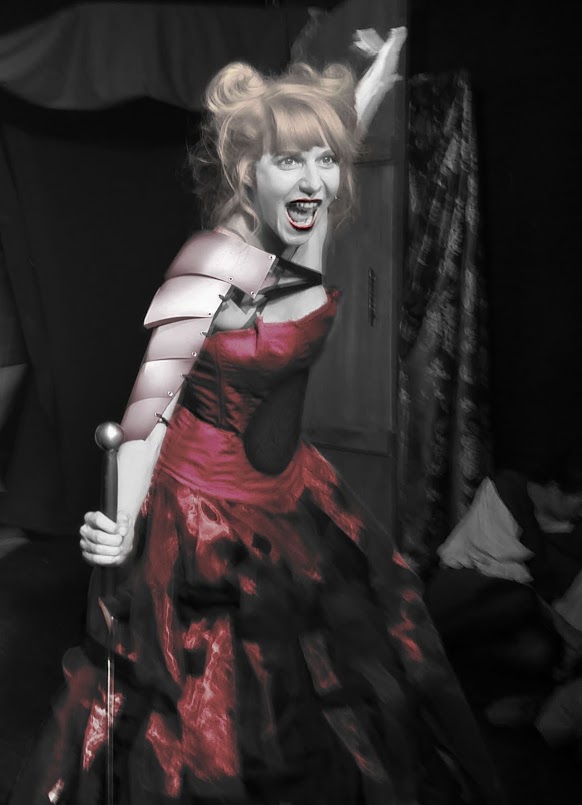





 |
|


